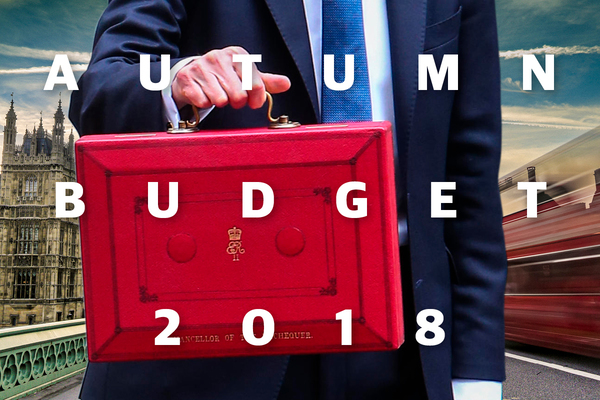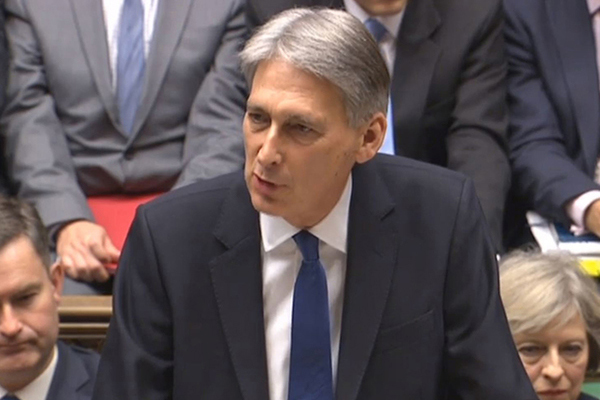You are viewing 1 of your 1 free articles
Universal Credit predicted to cost more than existing benefits system
Universal Credit will cost billions more than the existing benefits system over the next five years, the government’s official spending watchdog has said.
In its response to the Autumn Budget, the Office for Budget Responsibility (OBR) changed its March 2018 prediction that the government’s flagship welfare overhaul will save public money.
Instead, the body now forecasts that Universal Credit will end up costing the taxpayer £7.1bn more than the current system between 2019/20 and 2023/24.
That includes new funding for the programme announced by chancellor Philip Hammond on Monday in response to concerns about the impact Universal Credit is having on claimants.
But the OBR said that even without these measures, which include an extra £1bn for transition support and a £1.7bn-a-year plan to raise the work allowance threshold for some claimants, Universal Credit would come with a net cost of £1.9bn over the next five years.
In its Economic and Fiscal Outlook based on the Autumn Budget, the OBR said: “Our pre-measures forecast revisions were sufficiently large to push our estimate of the effect of [Universal Credit] on welfare spending from a net saving to a net cost in most years – the first time that it has been shown as a net cost on average since our March 2015 forecast.”
“Once Budget measures are factored in, the marginal cost moves significantly higher.”
The OBR believes that, not counting the new funding, Universal Credit will cost the Treasury £900m more as a yearly average up to 2022/23 than previously thought.
In June, the National Audit Office also warned that Universal Credit was not delivering value for money and could cost more to administer than the existing benefits system.
The Treasury and the Department for Work and Pensions have been approached for comment.
Autumn Budget 2018 - full coverage
All our Autumn Budget 2018 coverage in one place:
The Autumn Budget lacked the ambition we need Philip Hammond’s Budget fell short for housing, writes Melanie Rees
There were no big fireworks but the Budget offers an opportunity to deliver The Budget leaves associations facing a choice and we must now deliver, argues David Montague
Names of new housing association strategic partnerships revealed Homes England has released the names of the eight housing associations that have just signed strategic partnerships with the government.
Budget a missed opportunity on housing, says NHF Reaction to the Autumn Budget from several organisations, including the National Housing Federation
Budget small print reveals significant announcements for housing Housing policies contained in the Autumn Budget and background documents published yesterday will have a large impact, if they actually go ahead, writes Jules Birch
Hammond’s extra Universal Credit cash is welcome – but we need homelessness specialists in Job Centres too The Autumn Budget must not become a missed opportunity to put in place measures to prevent homelessness, argues Ruth Jacob of Crisis
Hammond announces extra funding for Universal Credit: Philip Hammond has announced plans to pump more money into Universal Credit in the Autumn Budget today.
Help to Buy equity loan scheme extended to 2023 for first time buyers:The Help to Buy equity loan scheme will be extended two years to 2023 for first time buyers only, with new price caps set for each English region.
Housing Live - the Autumn Budget 2018 as it happened: Live-blogging from Jules Birch reveals how the Autumn Budget unfolded and what it means for housing
OBR: scrapping council borrowing cap will deliver only 9,000 new homes: Scrapping the borrowing cap will deliver only 9,000 new homes over the next five years, the Office for Budget Responsibility (OBR) has said.
Letwin: builders of large sites must accept more ’diversity’ of tenure: Builders should be required to accept suggested levels of affordable housing for large sites in order to receive government support, including Help to Buy, a major review of housebuilding has concluded.
Chancellor announces strategic partnerships with nine housing associations: Nine housing associations have signed new strategic partnerships with the government to deliver over 13,000 homes, Philip Hammond has announced.
Stamp duty scrapped for buyers of shared ownership homes worth up to £500,000: Stamp duty will be scrapped for first-time buyers of homes for shared ownership, the chancellor has announced.
Autumn Budget 2018 - the key housing policies at-a-glance
- £1bn to help fund the implementation of Universal Credit over the next five years
- £500m in Housing Infrastructure Fund to unlock a further 650,000 homes
- The next wave of strategic partnerships with nine housing associations, which will deliver 13,000 homes
- British business bank guarantees for SME house builders
- ‘Simplification’ of process to convert commercial properties to new homes
- Providing funding to empower 500 neighbourhoods to allocate homes to local people in perpetuity
- Help to Buy equity loan scheme extended by two years to 2023 and limited to first-time buyers
- Retrospective inclusion of first-time buyers of shared ownership in stamp duty relief














